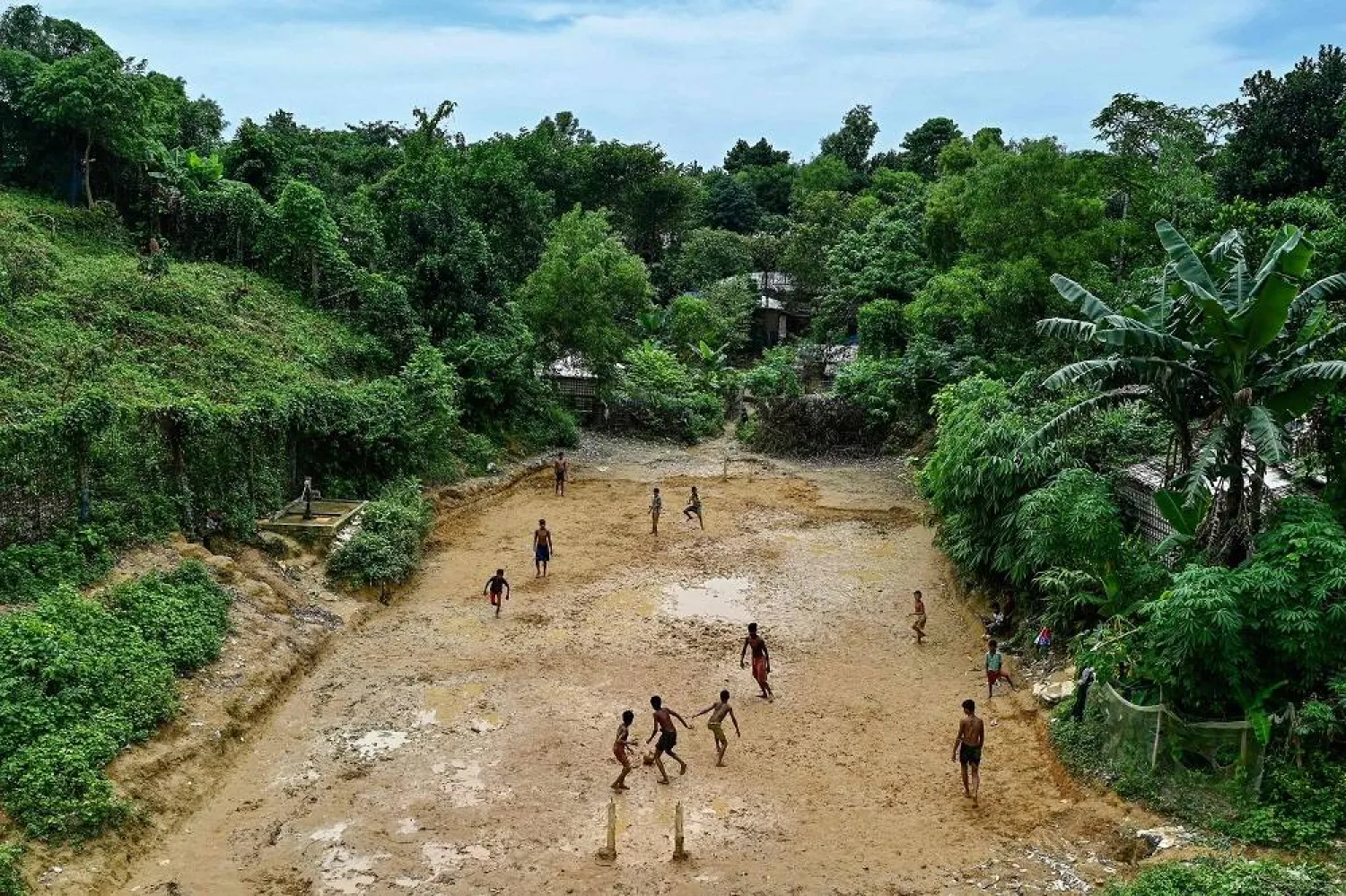Bangladesh has ramped up vigilance at its border with Myanmar, with at least 18,000 Rohingya Muslims crossing over in recent months to escape escalating violence in Myanmar's western Rakhine state, officials in Dhaka said.
The influx of refugees from Myanmar has mounted as fighting escalates between the troops of the ruling junta and the Arakan Army, the powerful ethnic militia that recruits from the Buddhist majority.
"Thousands of Rohingya have fled to Bangladesh and many are waiting to cross. The situation is dire," said a foreign ministry official, who asked not to be named as he was not authorized to talk to media.
The new arrivals add to more than one million Rohingya refugees already living in overcrowded camps in Cox's Bazar district after they fled a military-led crackdown in Myanmar in 2017. They have little hope of returning to Myanmar, where they are largely denied citizenship and other basic rights.
Arrivals have more than doubled from what the government estimated earlier this month, despite Bangladesh repeatedly saying it cannot accept more Rohingya refugees as resources are already stretched thin.
"The vigilance at the border has increased, but managing our 271 km (168 miles) border with Myanmar is challenging, especially without a security counterpart on the other side," said another government official, who spoke on condition of anonymity.
The official said many Rohingya were desperate and were finding ways to cross into Bangladesh.
The government has yet to make a decision on whether to register those who have entered recently and are living in refugee camps, said the foreign ministry official.
"If we decide to register them, it could open the floodgates, and that's something we can't afford," he said. "But at the same time, how long can we ignore this issue? That's the real question."
The head of Bangladesh's interim government, Nobel Peace Prize laureate Muhammad Yunus, has called for a fast-tracked third-country resettlement of Rohingya as a long-term solution, but the foreign ministry official said progress on resettlement has been limited.
"Around 2,000 people have gone under the resettlement program since it resumed in 2022 after a gap of 12 years," he said, adding that the United States, Canada, Australia, New Zealand, and Ireland were among countries taking in refugees.









